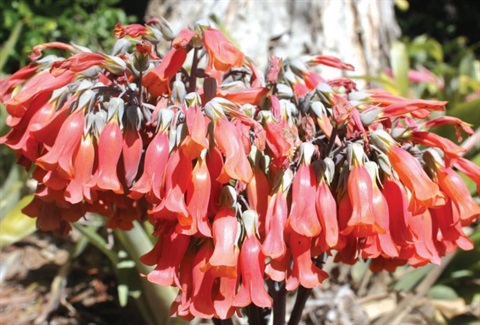Dangerous time for Bryophyllum spp
Published on 16 June 2022

Winter time is danger time for Bryophyllum spp. The plant is now starting to flower and poses its greatest risk to animals. It's also the best time for landholders to locate and treat the plant.
The flowers are the most poisonous part of the plant, especially to cattle. The greatest risk is during winter, particularly when feed is scarce or when cattle are new to a paddock. In one of the worst cases recorded, 125 head of cattle died in 1997 after feeding on a major patch of mother-of-millions near Moree.
Bryophyllum spp.is a native of Madagascar. Its attractive flowers made it popular as a garden plant, but over the years it has spread from gardens and rubbish tips to invade many rural areas. It is hardy, drought-resistant, and reproduces in massive numbers – hence the common name!
Poisoning symptoms in cattle include loss of appetite, scouring and heart problems. Treatment must be carried out within 24 hours by or under the direction of a veterinarian. Animals can die within one to five days depending on the amount of plant material consumed.
Mother-of-millions occurs in many areas throughout the north west. This toxic plant is assessed as a Priority weed in the Northwest region. Winter is the optimum time to carry out treatment work because the flowers make the plants easier to find.
Legal Obligations-Biosecurity Act 2015
A general biosecurity duty applies to all dealings (as defined) with this species. Any person who deals with this species who knows (or ought to know) of any biosecurity risk posed by the plant, a carrier or a dealing, has a duty to ensure the biosecurity risk is prevented, eliminated or minimised, so far as is reasonably practicable.
Mandatory Measure (Division 8, Clause 33 Biosecurity Regulation 2017)
A person must not import into the State or sell.
For further information including control options please refer to the:
NSW Weed Wise: www.weeds.dpi.nsw.gov.au, or
Contact Liverpool Plains Shire Council Authorised Biosecurity Officer Mike Whitney on 6746 1755